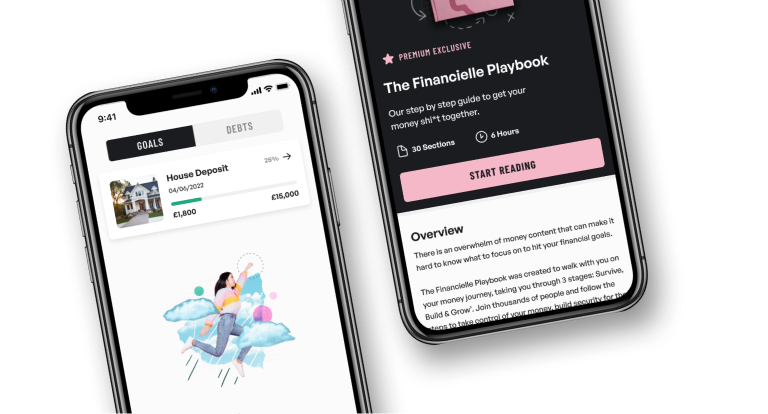How to budget on a low income

How to budget on a low income
Times are hard for many of us right now, but especially for those living on a low income and battling the cost of living crisis. With the rate of inflation increasing ahead of the rate of pay growth, it’s never been a more crucial time to budget and take control of what you can.
Budgeting can be daunting for many but we have to push through the emotions because we have no choice. Everything feels out of control right now but we’re to give you some back control in the form of a well thought out budget, a plan if you will to get you through.
Check out Financielle’s tips:
Know Your Numbers – the first budget!
We need to work out where you’re at right now. Set time aside, create a budget and you’re going to need four categories: Income, Fixed Expenses, Sinking Funds and Flexible Expenses.
Income: all income coming into the household that funds the expenses in the budget
Fixed expenses: all fixed costs – usually your automatic bank payments – such as bills and subscriptions
Sinking Funds: a pot of money you build up for expected expenses, such as MOT, car insurance or home repairs
Flexible expenses: all flexible or variable costs, such as food, groceries, fuel or gifts.
Use your banking apps and statements, collect all your logins and financial paperwork and try to do a first “as is budget”, so fill the categories with the amounts you estimate that you spend right now.
You could use the Financielle App budget planner to do your first budget – otherwise a piece of paper will do.
For Income, count everything and work out what you’re entitled to
In this budget, we want to get the income up as high as it can be. Don’t forget to explore options for pay rises or side hustle income. If these options aren’t available to you right now, you still have a couple of options:
- Make sure you include all income in the budget, so if you receive Universal Credit, child maintenance, child benefit, part time income or any other forms of income – include them. Every single penny coming into the household matters. If you share some expenses with a partner, make sure you’re choosing as fair an amount as you can to contribute to the budget.
- If you’re on a low income there’s a good chance you may be entitled to some financial aid from the government. Check out what you could be eligible for here. It’s important to take the time to make sure you are claiming all you can.
Squeeze the budget
You should have already listed the expenses in the first budget and you may have more expenses than you have income.
Now, we’re going to try and squeeze the budget. What can you cut from your budget to make the budget balance i.e. hit zero? This means cutting out any unnecessary costs such as subscriptions you don’t use or don’t desperately need, negotiating and securing better deals on things like your broadband, car insurance and generally optimising the expenses you have.
We welcome all innovative and imaginative solutions here – sometimes it’s not as simple as cutting Netflix and that being enough – but it could be changing up kids’ hobbies, lengthening time between beauty appointments or sharing entertainment accounts with friends or family.
Check out our free Money MOT in the Learn section of the Financielle App for tips on how to squeeze your budget.
Can you bring in extra income?
There is only so far you can cut expenses and with the cost of living rising, it may not be enough. It may be worth considering whether you could bring in extra income, either via a part time job or side hustles.
Sometimes extra work may not be possible, for example due to childcare or health reasons, but there are more and more ways to earn more money from home, especially using sites such as fiverr.com.
You can also generate additional revenue by selling unwanted items on Facebook Marketplace, Vinted, Depop and other reselling sites. You can take part = in customer questionnaires, secret shopping missions and online surveys. These are great ways to make money on the side whilst being flexible.
You may be entitled to earn up to £1,000 per year tax free doing the above under the trading income allowance.
Frugal Foodies!
One of the most common questions in our community is how to bring down the cost of the food budget. It’s a place where most people come unstuck when budgeting, but it presents the biggest opportunity to optimise spend!
This is getting harder and harder with the impact of inflation on your shopping basket, especially for females who are more likely to manage the food shop.
The best ways to optimise food spend are:
- Plan your meals
- Batch cook
- Treat breakfasts and lunches as fuel – they can be boring and repetitive. Let yourself be creative with evening dinners (and even then, leftovers are your friend!)
- Put 1-2 treats on the shopping list ahead of time, don’t fall for impulse treats on the way round the supermarket.
- Have some meat free meals
- Try to reduce wastage – frozen veg is your friend and just as healthy!
- Ditch drinks in favour of tap water, good for health and for the wallet
At Financielle HQ we’re loving Instagram accounts like @tamingtwins and @cardiffmum who show you how to make 5 x family meals for between £25-£30 at Aldi.
We’re also loving apps like Olio where communities can share unwanted but edible food that would otherwise go to waste.
Toogoodtogo is a great way to get heavily discounted food from your favourite high street foodie joints like Greggs, Costa and Pret.
Old school yellow stickers: a great way to grab a bargain! Always look for things you can freeze that can make multiple meals. Desserts and ready meals are great but they arguably only feed you once. Try and look for meat and vegetables that can be batch cooked to extend their usage.
Share the budgeting load
Women control over 85% of the world’s spending meaning it’s highly probable that we control the household expenses. If you’re feeling the pressure and it’s time to tighten belts, ensure the family is on the same page.
If your children are old enough, it’s important to explain the situation so you don’t have to carry the guilt of not spending on luxuries and items that aren’t necessities within the household budget.
After speaking to Financielle community members we’ve found the majority of couples don’t sit down and walk through the household budget, meaning one person is sticking to the budget, making cut backs and going without whilst their partner is spending money on things outside the core budget.
Communication and sharing the load is key to navigating budgeting on a low income. If you don’t have a partner and want extra support and accountability, share your struggles with friends or family – they are probably feeling as overwhelmed as you! And you can always join the Financielle Accountability Whatsapp group – apply here.









